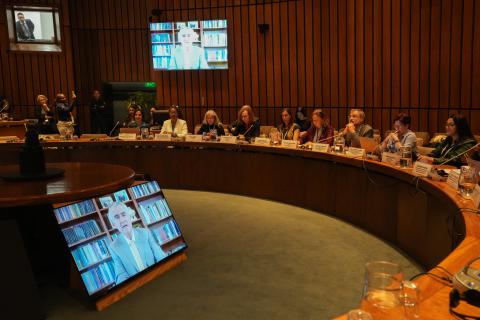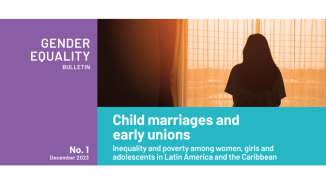News
The enjoyment and use of public space in cities is an indicator of quality of life. In Latin America, the street and public transport are not neutral ground, and the degree of freedom experienced by men and women when moving through the city is different. The entrance of women into public spaces has been an advance in their autonomy, although their movements are lived unequally. Besides the fear of theft and assault, women experience the fear of rape and kidnapping and are exposed to a daily form of violence that is expressed through words, noises, phrases that undermine them, brushes or body contact and physical abuse that have specific negative effects to living safely on the street. This type of sexual violence has been confronted by diverse social organizations in the countries of the region, which has raised the awareness on one of the most minimized and naturalized forms of violence against women, one that affects their right to security, limits their use of public space and prevents them from attaining autonomy.
The main victims of harassment in public spaces, in the street as well as on public transport, are young women. In Lima, 9 of every 10 women between 19 and 29 years of age has been victim to street harassment (2013). In Bogota and Mexico City, 6 out of every 10 women have experienced some sexual aggression on public transport (2014). In the case of Chile, 5 out of every 10 women between 20 and 29 years of age have declared to have experienced sexual harassment on the street (2015).
Peru is the first country to enact, in March 2015, a Law to Prevent and Sanction Sexual Harassment in Public Spaces with the aim of protecting women, girls and adolescents from sexual harassment in public spaces that affect their dignity, freedom and free movement, as well as their right to physical and moral integrity. In Argentina, Chile and Paraguay, laws are currently under parliamentary review regarding the sanctioning of street harassment and to generate cultural change with regard to verbal sexual harassment, photographic or video capture, intimidating approaches and non-physical acts such as exhibitionism, masturbation and stalking. These legal instruments must be accompanied by actions that guarantee women their rights. All gender equality policies are anti-violence policies.
For more information:
://www.cepal.org/oig/default.asp?idioma=IN
://www.cepal.org/es/publicaciones/38862-violencia-de-genero-en-el-transport... (Spanish)
This and other relevant topics for gender equality will be discussed at the XIII Regional Conference on Women in Latin America and the Caribbean, to be held in 2016 in Montevideo, Uruguay.
“Without gender equality, sustainable development is neither development nor sustainable”


